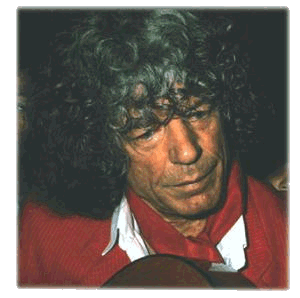Archives
- 01/01/2004 - 02/01/2004
- 02/01/2004 - 03/01/2004
- 03/01/2004 - 04/01/2004
- 04/01/2004 - 05/01/2004
- 05/01/2004 - 06/01/2004
- 06/01/2004 - 07/01/2004
- 07/01/2004 - 08/01/2004
- 08/01/2004 - 09/01/2004
- 09/01/2004 - 10/01/2004
- 10/01/2004 - 11/01/2004
- 11/01/2004 - 12/01/2004
- 12/01/2004 - 01/01/2005
- 01/01/2005 - 02/01/2005
- 02/01/2005 - 03/01/2005
- 03/01/2005 - 04/01/2005
- 04/01/2005 - 05/01/2005
- 05/01/2005 - 06/01/2005
- 06/01/2005 - 07/01/2005
- 07/01/2005 - 08/01/2005
- 08/01/2005 - 09/01/2005
- 09/01/2005 - 10/01/2005
- 10/01/2005 - 11/01/2005
- 11/01/2005 - 12/01/2005
- 12/01/2005 - 01/01/2006
- 01/01/2006 - 02/01/2006
- 02/01/2006 - 03/01/2006
- 03/01/2006 - 04/01/2006
- 04/01/2006 - 05/01/2006
- 05/01/2006 - 06/01/2006
- 06/01/2006 - 07/01/2006
- 07/01/2006 - 08/01/2006
- 08/01/2006 - 09/01/2006
- 09/01/2006 - 10/01/2006
- 10/01/2006 - 11/01/2006
- 11/01/2006 - 12/01/2006
- 12/01/2006 - 01/01/2007
- 01/01/2007 - 02/01/2007
- 02/01/2007 - 03/01/2007
- 03/01/2007 - 04/01/2007
- 04/01/2007 - 05/01/2007
- 05/01/2007 - 06/01/2007
- 06/01/2007 - 07/01/2007
- 07/01/2007 - 08/01/2007
- 08/01/2007 - 09/01/2007
- 09/01/2007 - 10/01/2007
- 10/01/2007 - 11/01/2007
- 11/01/2007 - 12/01/2007
- 12/01/2007 - 01/01/2008
- 01/01/2008 - 02/01/2008
- 02/01/2008 - 03/01/2008
- 03/01/2008 - 04/01/2008
- 04/01/2008 - 05/01/2008
- 05/01/2008 - 06/01/2008
- 06/01/2008 - 07/01/2008
- 07/01/2008 - 08/01/2008
- 08/01/2008 - 09/01/2008
- 09/01/2008 - 10/01/2008
- 11/01/2008 - 12/01/2008
- 01/01/2009 - 02/01/2009
- 04/01/2009 - 05/01/2009
- 07/01/2009 - 08/01/2009
- 09/01/2009 - 10/01/2009
- 10/01/2009 - 11/01/2009
- 11/01/2009 - 12/01/2009
- 12/01/2009 - 01/01/2010
- 03/01/2010 - 04/01/2010
Utopian Turtletop. Monsieur Croche's Bête Noire. Contact: turtletop [at] hotmail [dot] com
Sunday, April 20, 2008
I recognized one of the teenagers at tonight’s Seder -- he had worked at a private kids’ gym where the 5-year-old had been invited to a birthday party in January. A nice teenager; yes, he worked there; I recognized his name, T-, as much as I recognized him. Later in the evening I overheard him telling another teenager that his band was breaking up because everybody wanted to go to college; from how he talked, apparently they had had some local success.
During dinner I sat across the table from a flamenco guitarist -- a white guy -- T’s father. I had a lot of questions.
“Where did you study?”
“I heard flamenco when I was in law school. I dropped out and went to Spain.”
Stories about studying with Gypsy families in southern Spain, families who had passed down their own repertory for hundreds of years.
“What’s the relationship between flamenco and cante hondo?”
“They’re basically the same thing. Gypsies call what they do ‘cante’ -- ‘song,’ though not ‘cancion.’” Some gypsy families can’t afford a guitar, but they can still sing “cante,” with handclap or table-thumping accompaniment.
The supreme moments in flamenco center around the singer, J- told me, and they only happen in private. A connoisseur will invite a great singer to his house, and the evening will be conducted in order to make the singer comfortable, in hopes that something special would happen. A guitarist would play, maybe a lesser singer would sing a song, people would drink, someone would make a request, “Do you remember that song that so-and-so sang at such-and-such a time?” And it only got really, really good if the people at the house were aficionadoes. The great singer might sing something pretty, but the aficionadoes would say, “We don’t want that pretty shit.” Do you know about the duende?
I nodded familiarity.
“Duende is the spirit, and when the spirit takes over, anything might happen. Nothing matters, only getting that sound out. The singer might tear his shirt, it’s like possession.”
“Did you ever witness this?”
“Two or three times. It usually doesn’t happen. But that’s always the goal.”
“It sounds extraordinary.”
“Yeah, it’s worth three years of your life. I had all sorts of other adventures too during that time. I thought I was there to learn this style, but I realized later that I was there to learn things about myself.”
I confessed knowing only a tiny bit about flamenco, and asked about Manitas de Plata, a/k/a Ricardo Baliarda.
“He’s like cream cheese. You gotta go for brie. You gotta go for the stinky stuff.” But he didn’t have recommendations; not much of it available commercially, he said.
I asked about his repertory.
“Flamenco is like blues. You learn different types of songs, different rhythms, different riffs, different harmonic patterns. Maybe one family will have a [Spanish equivalent of riff] that always goes in one particular song, maybe there will be little things that will have been composed,” but he preferred improvisation.
T-, J-’s son, is going to Sevilla this summer to visit a friend of his dad’s, a flamenco guitarist. “Can I come with you?” T- laughed.
Here’s some video of Manitas de Plata
The Seder was lovely. I’d never been to one before.
Comments:
Post a Comment
